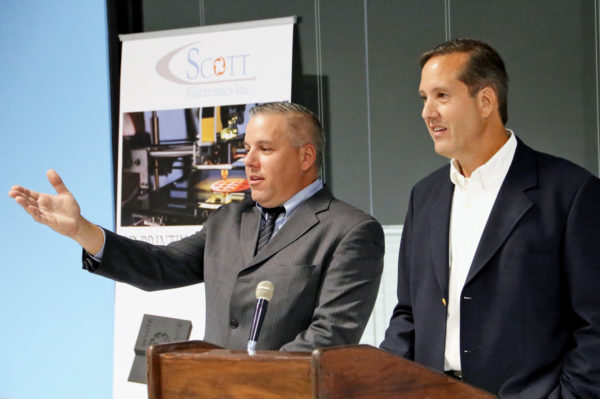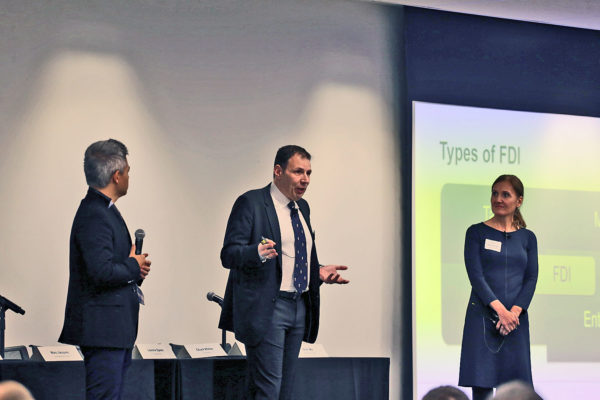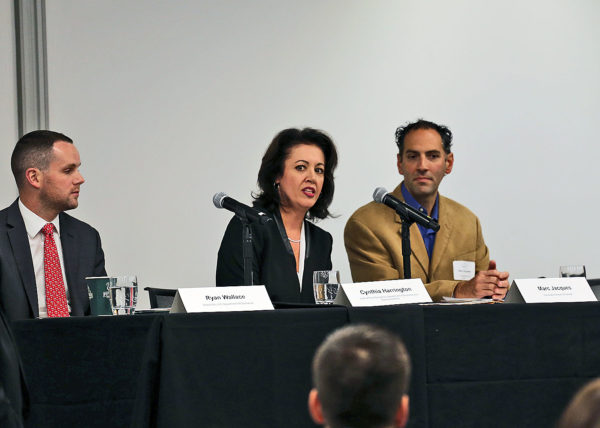Gov. Chris Sununu, along with state and local officials, a bipartisan group of young legislators, and housing activists, released a comprehensive plan to address New Hampshire’s housing shortage.
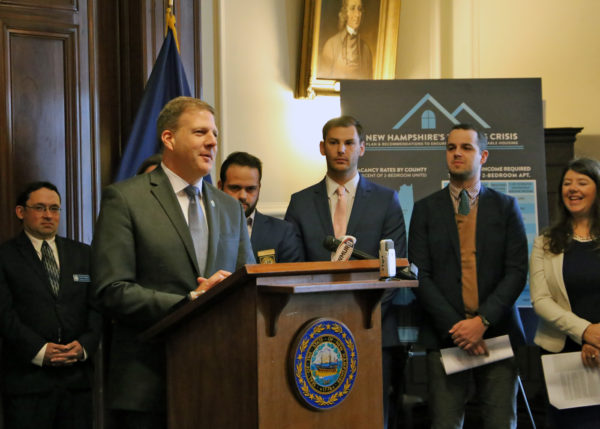
“This past summer I assembled a housing task force to develop recommendations to address our shortage, which has risen to crisis levels,” Sununu said. “Today, I am proud to say that as a result of the work of the task force, my office, and a bipartisan group of young legislators, we are releasing the most comprehensive plan on housing that this State has ever seen. I look forward to a productive conversation with the legislature and all interested stakeholders, and to working together to pass a plan that will be a win for our workforce, our communities, and our entire state.”
Earlier this summer, Sununu established a task force to develop recommendations to address New Hampshire’s housing crisis. The group consisted of state and local officials, and industry experts: Business and Economic Affairs Commissioner Taylor Caswell; Dean Christon, executive director of New Hampshire Housing Finance Authority; Ben Frost, policy and public affairs director of the New Hampshire Housing Finance Authority; Noah Hodgetts, assistant planner at Office of Strategic Initiatives; Portsmouth City Councilor Rebecca Perkins; Matt Sullivan, director of Planning and Community Development in Wolfeboro, and Mike Claflin, workforce housing developer.
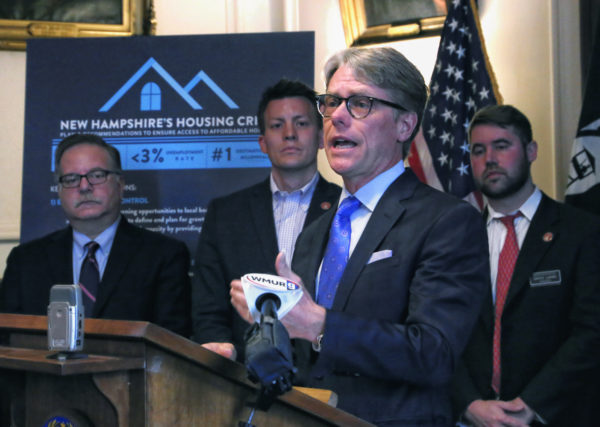
“Housing and economic development must go hand in hand,” Caswell said. “If we are going to continue our success in attracting a younger workforce to New Hampshire, we must have a much broader spectrum of housing for people at all stages in life. Enactment of these proposals will put us light years ahead of where we are right now in addressing this crisis.”
There is a critical housing shortage in New Hampshire. As of the summer of 2019, the vacancy rate for two bedroom apartments fell below 1 percent in all but one New Hampshire county. The inventory of homes for sale is near record lows.
The housing plan can be viewed here and a set of FAQs for the plan can be viewed here.
The legislative piece of the plan includes two bills. The first one focuses on enhancing local control and improving predictability of the development process, and the second focuses on accelerating investment in housing.
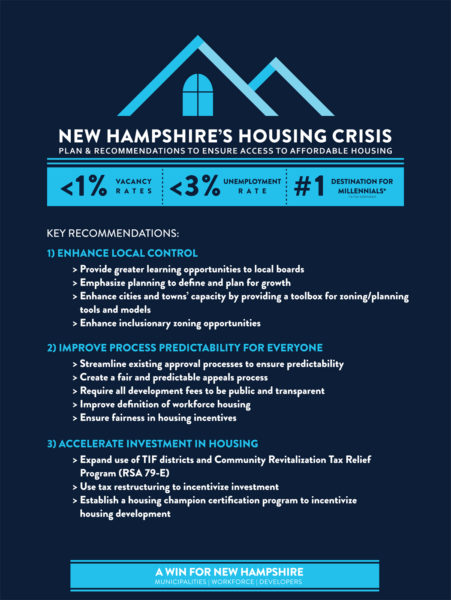
The prime sponsor of the first bill is Rep. Willis Griffith (D-Manchester), chairman of the Young Democrats Caucus. The prime sponsor of the second bill is Rep. Joe Alexander (R-Goffstown). Griffith and Alexander, together with Rep. Tom Loughman (D-Hampton) and Rep. Gates Lucas (R-Sunapee), worked with the housing task force crafting legislation to implement the plan issued today (10/30/19) .
“This plan is a strong step forward in addressing the housing crisis in New Hampshire and is a result of bipartisan collaboration with housing experts,” Griffith said. “This package of bills will be the beginning of a thoughtful discussion in which I invite all stakeholders, community members, and legislators to participate. I am confident that, together, we will make meaningful progress on one of the most significant issues facing our state.”
Alexander said the bills represent months of research and discussion by stakeholders and policy leaders.
“We are in a position to pass legislation that will solve one of the greatest problems facing New Hampshire,” he said. “I look forward to a robust and comprehensive conversation around the crisis of affordable housing in New Hampshire and welcome any and all feedback from policy leaders, stakeholders, and the public.”
Final text of the bills will be available 11/1/19, after final sign off for House bills.











